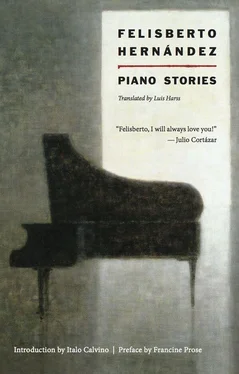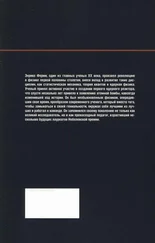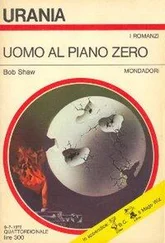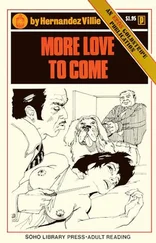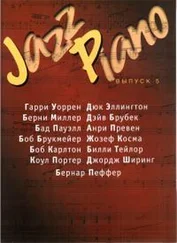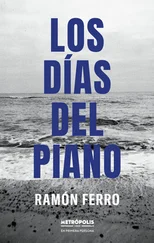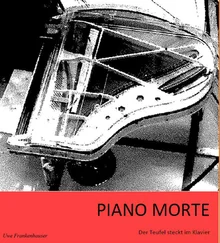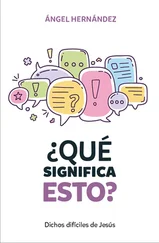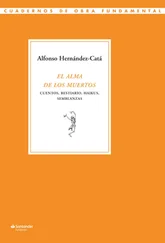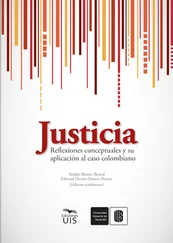Felisberto Hernandez - Piano Stories
Здесь есть возможность читать онлайн «Felisberto Hernandez - Piano Stories» весь текст электронной книги совершенно бесплатно (целиком полную версию без сокращений). В некоторых случаях можно слушать аудио, скачать через торрент в формате fb2 и присутствует краткое содержание. Год выпуска: 2014, Издательство: New Directions, Жанр: Современная проза, на английском языке. Описание произведения, (предисловие) а так же отзывы посетителей доступны на портале библиотеки ЛибКат.
- Название:Piano Stories
- Автор:
- Издательство:New Directions
- Жанр:
- Год:2014
- ISBN:нет данных
- Рейтинг книги:4 / 5. Голосов: 1
-
Избранное:Добавить в избранное
- Отзывы:
-
Ваша оценка:
- 80
- 1
- 2
- 3
- 4
- 5
Piano Stories: краткое содержание, описание и аннотация
Предлагаем к чтению аннотацию, описание, краткое содержание или предисловие (зависит от того, что написал сам автор книги «Piano Stories»). Если вы не нашли необходимую информацию о книге — напишите в комментариях, мы постараемся отыскать её.
Piano Stories
Piano Stories — читать онлайн бесплатно полную книгу (весь текст) целиком
Ниже представлен текст книги, разбитый по страницам. Система сохранения места последней прочитанной страницы, позволяет с удобством читать онлайн бесплатно книгу «Piano Stories», без необходимости каждый раз заново искать на чём Вы остановились. Поставьте закладку, и сможете в любой момент перейти на страницу, на которой закончили чтение.
Интервал:
Закладка:
Felisberto Hernandez
Piano Stories
Lighting the Lamps: A Preface
In the library of a university at which I taught for one semester, there was a pleasant, brightly lit browsing lounge furnished with comfortable sofas and chairs. Lined up neatly on the shelves, the newest books with the shiniest covers winked enticingly at students and researchers rushing by on their way to the stacks — and never managed to attract more than one casual lounger or browser.
I was that solitary browser. The New Books Lounge was where I hid out between classes, and where I first read an essay by Italo Calvino in which he praised the fiction of Bruno Schulz and that of the Uraguayan, Felisberto Hernández, in whose stories, wrote Calvino, “The narrator, who is usually a pianist, is invited to lonely country houses where wealthy maniacs set up complicated charades in which women and dolls change places. [Hernández] has a few things in common with Hoffmann, but in fact he is like no one else.”
I had named my first son Bruno, partly after Bruno Schulz, whose work, at the time I read the Calvino essay, still seemed like something of a secret: a secret which, happily, has come out in the years since then. And naturally, I was curious to read the work of a writer who Calvino considered so singular and put in such singular company.
Amazingly, the university library had the first volume of the Mexican edition of Felisberto Hernández’s stories: Nadie encendía las lámparas. No One Had Lit the Lamps.
Just translating the title exhausted the absolute limits of my Spanish. I borrowed the book from the library and eagerly took it home, as if I’d forgotten that I couldn’t read the language.
I kept the book the entire term (no one else requested it) and sometimes opened its pages and picked out recognizable words. I couldn’t imagine what miracle I expected so that these isolated Spanish words — pianos, hands, light, water, women, furniture, hair — would organize themselves into stories and reveal their complex meanings.
The term ended. I returned the book — needless to say, unread. Later, I often found myself in the library or bookstore, idly looking for Hernández’s work in English, excitedly but without the faintest hope, the way we may look up an old friend’s name in a local phone directory, though we know that it has been years since that friend left town, or died.
One decade after I pretended to read Felisberto Hernández in a language I couldn’t read, his book was published in English by Marsilio as Piano Stories , translated by Luis Harss, with an introduction by Italo Calvino, and now, two more decades later, this out-of-print edition is being republished by New Directions.
The story of Felisberto Hernández’s life sounds like a tale he might have written: fantastic, grotesque, and slyly funny. In a preface to his eloquent translation, Luis Harss recounts the “unspectacular” life of the man whom readers and critics often refer to as Felisberto, perhaps because the name is so exotically attractive, or perhaps because we feel an intimate kinship with this suffering brother-artist, with his inflated ego, his pitiful obscurity, his genius: the gifted tortured eccentric we still think of as The Artist, on the model of Kafka, Van Gogh, Joseph Cornell, and not Julian Schnabel.
Felisberto Hernández was born in 1902, in Uruguay, where he died, sixty-two years later. He made his living as a pianist, accompanying silent films in cinemas and later playing small concert halls throughout Uruguay and Argentina. “Once, he spent some shadowy months on a grant in France,” writes Harss. “He married four times; was a great eater and raconteur at literary soirees; had a passion for fat women; loved to improvise on the piano in the style of various classical composers; once toured Argentina with his own trio, other times with a flamboyant, bearded impresario called Venus González. He preferred to write in shuttered rooms or basements; suffered a life-long emotional dependence on his mother; was haunted by morbid vanity and a sense of failure; became ill-humored and reactionary in middle age; and died of leukemia, his body so bloated that it had to be removed through the window of a funeral home in a box as large as a piano.”
For much of his life, Felisberto kept a journal in a secret code resembling musical notation. Obsessed with the past and with memory, he was a fervid admirer of Proust. His literary fortunes could hardly have been more dismal or more like the musical careers of the hapless young men he sends, in his fiction, to entertain in the homes of maniacs; his wives were obliged to support him. He paid for the printing of his early books, which included decoded fragments from his journal. Three collections of stories were commercially published, though “commercially” is an overstatement. Luckily, he had champions and patrons at home and among the South American expatriate community in Paris. One supporter, the Uruguayan critic and philosopher Carlos Vaz Serrerra, wrote, “There may be only ten persons in the world interested in these stories, but I am one of them.”
Ten was evidently not enough. Felisberto died poor, his stories out of print. And he has only become more well known in Latin America since a three-volume edition of his writing appeared in Mexico in 1983. (The rights to his work are in a chaos, struggled over by interested parties, including his nieces.)
Perhaps Felisberto’s singularity kept him from gaining wider acceptance. There is no “school” he belongs to, no category he fits. Calvino was right in claiming that Hernández was unlike anyone else — especially the artists with whom he has been grouped: he is neither a Surrealist, a naïf, nor a Magical Realist.
The writer he most resembles is, as Calvino said, Bruno Schulz. Both men share a gift for smudging the crisp edge of the real, for making the non sequitur seem the logical next step, for restoring the world to that Edenic and sinister childhood state in which flowers, fruit, the weather, insects, all manner of inanimate objects lead dangerous, hidden, and polymorphously erotic lives of their own.
Certain writers invite us to peer into people’s windows, through the brilliant polished glass of Prince André’s palace or the Duchesse de Guermante’s salon, through the dusty screens of the farms that dot Alice Munro’s Ontario and the trailers in which Raymond Carver’s characters stumble and lose their way. Such writers invite us to watch our neighbors at typical or extraordinary moments, men and women being their highly specific individual selves, and at the same time behaving so very much like we do, that we may feel we have looked through their windows and directly into their souls.
But there are other writers who make us feel that we have been invited through a door, a doorway barely cracked open, invited at great personal cost into the writer’s own house: into Gregor Samsa’s apartment, the bedroom of Molloy’s mother, or the seedy tropical hotels in which Jane Bowles’s serious ladies chatter desperately as they grapple with their private terrors.
It’s darker in these houses than in the clear light of day; the floor plan seems highly eccentric. And yet we never doubt that the writer knows the way, as he or she leads us further and further into some cellar or crawl space, where we witness a vision of such startling beauty that it flares up like an old-fashioned phosphorus match and illuminates our whole lives.
It’s almost as if we must read such fiction in a different state of consciousness, with our disbelief suspended more firmly than usual, with an acceptance of illogic that mimics the way we apprehend reality in our dreams. It’s not at all like reading descriptions of dreams in fiction, which (with rare exceptions, such as Anna Karenina’s dream) often ring false: apt, stagily convenient soundings of a character’s unconscious. To read writers like Bruno Schulz and Felisberto Hernández is less like hearing about a dream than like actually having one: familiar notions of causality no longer apply, and yet the sequence of events seems correct, as it does in dreams, even when people and objects behave in unlikely ways. In Hernández’s vividly animistic world, objects have desires, as we do, though mostly what they want is to change into other objects, into living creatures or body parts.
Читать дальшеИнтервал:
Закладка:
Похожие книги на «Piano Stories»
Представляем Вашему вниманию похожие книги на «Piano Stories» списком для выбора. Мы отобрали схожую по названию и смыслу литературу в надежде предоставить читателям больше вариантов отыскать новые, интересные, ещё непрочитанные произведения.
Обсуждение, отзывы о книге «Piano Stories» и просто собственные мнения читателей. Оставьте ваши комментарии, напишите, что Вы думаете о произведении, его смысле или главных героях. Укажите что конкретно понравилось, а что нет, и почему Вы так считаете.
